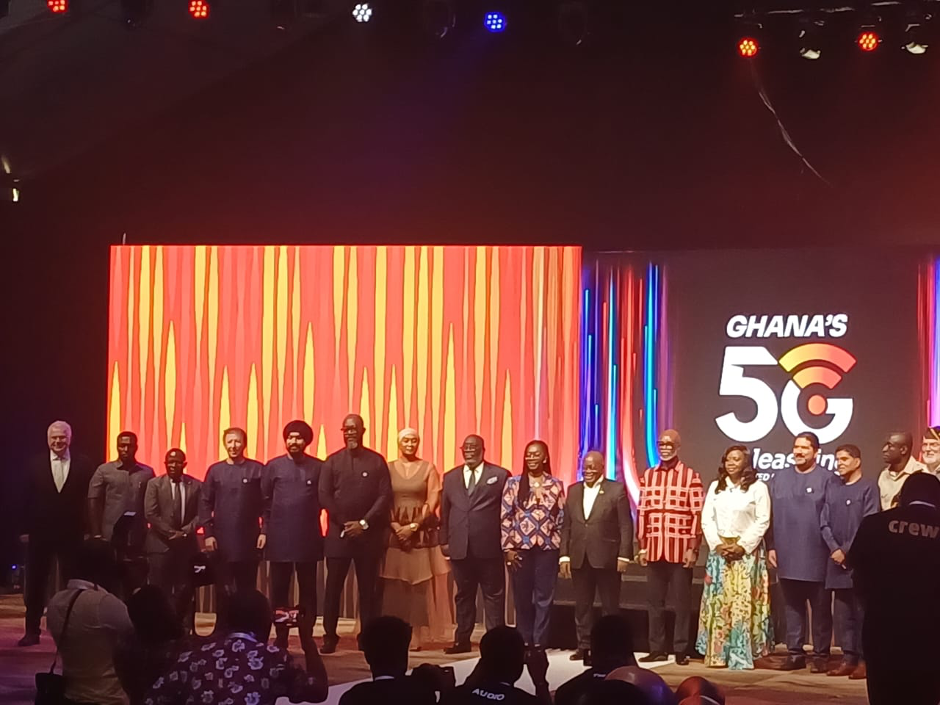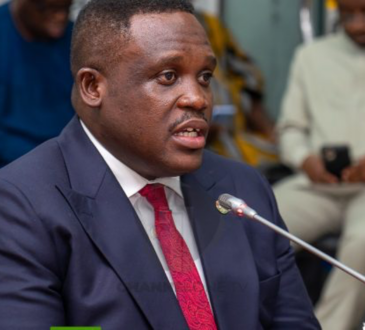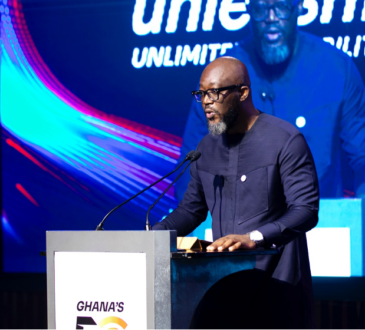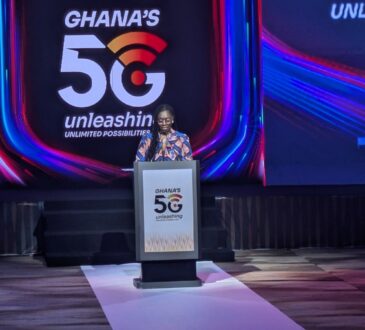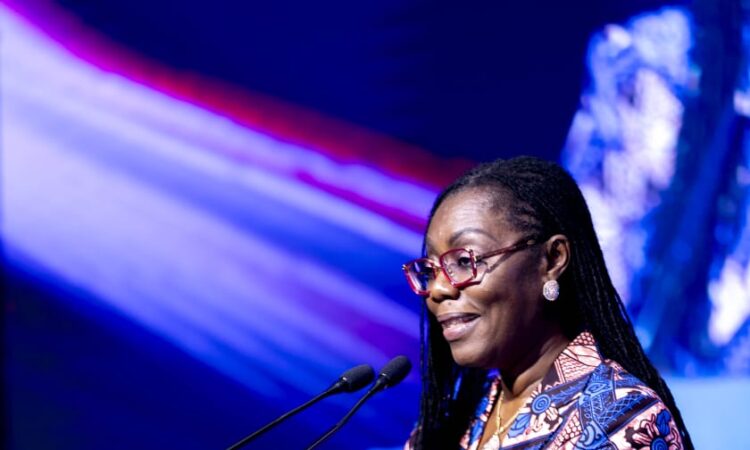
The Minister of Communications and Digitalisation, Ursula Owusu-Ekuful, has indicated that the government wants to cut red tape and costs to help mobile network operators roll out fast-speed 5G, ensuring it is affordable.
According to her, the Ministry is committed to ensuring that 5G benefits all Ghanaians, regardless of location, especially the rural areas, and is partnering with telecom providers to offer affordable data plans and explore public-private partnerships to further reduce costs.
Speaking at the launch of the 5G technology in Accra last Friday, she said “Affordability is a priority in our 5G rollout plan. We are collaborating closely with telecom services providers to offer affordable data plans catering to various needs and budgets. Additionally, the government is exploring public-private partnerships to reduce consumer costs. Through these efforts, we aim to make 5G accessible to businesses, small enterprises, students, urban residents, and low-income households. Our goal is to create a digital ecosystem where high-speed connectivity is within the reach of everyone.”
Learning from past challenges, she noted that the government is adopting a shared neutral wholesale network model for 5G, granting Next Generation Infrastructure Company (NGIC) a 10-year exclusivity to build 4G/5G infrastructure for all operators. This model, she explains fosters fair competition based on service quality rather than network coverage. “If you live in an initial 5G area and lack access by December, your network provider should address it.”
As part of rural inclusion strategy, government has developed an initiative to subsidise infrastructure costs in underserved areas and are working with its partners to leverage satellite and wireless solutions, which are often more feasible for rural deployment.
“Our Universal Service Fund, managed by GIFEC, is now largely dedicated to rural connectivity projects, reinforcing our commitment to digital equity. This approach will deliver fast, reliable 4G and 5G services to communities that have traditionally faced connectivity challenges.”
Under the shared network model, mobile network operators the Minister posited, will lease capacity from Next Generation Infrastructure Company (NGIC) thereby sharing network operational costs rather than each investing in separate builds.
Further stating that the move aims to spread costs more equitably and reduce service prices for users, while also ensuring nationwide rollout beyond commercially viable urban centres.
Ms. Owusu-Ekuful also argued that the potential of 5G extends beyond mere incremental improvements; “it is a revolutionary leap forward that promises to redefine connectivity, productivity, and overall quality of life.
With its unparalleled speed, low latency, and enormous capacity, 5G has the potential to drive innovations in every sector—agriculture, health, transport, manufacturing, and beyond. The Internet of Things (IoT), artificial intelligence (AI), and smart cities are no longer futuristic concepts but imminent realities ready to transform our ways of living and working.”
To address data security concerns, the Minister assured that Ghana’s 5G network has been designed in line with international cybersecurity standards. “The 5G network is built with global best practices, embedding data protection, cybersecurity, and network security measures. Just as our 4G network is secure, so is the 5G,” she stated.
The arrival of 5G in Ghana marks a major milestone in the country’s digital journey. The initial rollout will focus on major cities, with residents in Accra, Kumasi, and Takoradi among the first to experience its benefits once network operators activate the service.
The government aims to expand coverage to additional urban areas by the end of 2024, with a target of achieving nationwide access, including rural areas, by 2026. This phased approach ensures careful deployment aligned with infrastructure readiness and quality standards.
The Minister also announced the construction of a Digital Youth Hub at the University of Ghana, designed to foster the development of Ghana-specific 5G applications across key sectors. The high-speed shared network is expected to accelerate innovation, with plans to replicate this initiative on other campuses.
With the rollout of 5G, Ghana joins over 10 African nations leading the continent’s digital transformation. Initially, the network will launch in five regions—Accra, Ashanti, Eastern, Volta, and Central—with plans to expand to other regional cities soon.
The fifth generation of wireless technology, 5G, promises significantly higher internet speeds, faster data transfers, and improved network reliability compared to previous generations.
It is expected to deliver up to 10 times the speed of 4G Plus services, marking a major upgrade in connectivity. Enhanced capacity and lower latency will enable faster downloads and more consistent performance across industries.
The initiative, designed to provide affordable high-speed mobile broadband across Ghana, is expected to drive digital transformation, particularly in areas such as healthcare, education, and financial services.
The 5G license has been awarded to Next Gen InfraCo NGIC, a newly created shared infrastructure company co-promoted by the government and a consortium of firms, including Ascend Digital, K-NET, Radisys, Nokia, Tech Mahindra, AT Ghana, and Telecel Ghana.
The collaborative effort is expected to deliver cost-effective 5G services across the country, ensuring broader access to next-generation mobile connectivity.
By Eugene Davis
